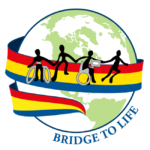Practice to Research ↔ Research to Practice
Dr. Sarah Blackstone
This presentation will highlight The Bridge School’s Research Program. We will explain how we have documented unmet needs, evaluated programs, and considered the impact evidence-based assessments and intervention approaches can have on students who were enrolled in an educational setting.
All students who attend The Bridge School have severe speech and physical impairments. About half have a diagnosis of CVI. All require AAC and other assistive technology/durable medical equipment to move, engage with peers/staff and participate in daily activities. Effective communication, self-determination, literacy, independent mobility and active engagement are key goals for all children.
The research team works with the staff, research council, and consultants. Our partnerships include TBS’s interprofessional team and leadership, members of TBS board of directors, parents, and several highly esteemed researchers from other universities with whom we share interests.
The Research Program aims to inform and support best practices that are relevant for all children with similar profiles around the world. In this session, we will share projects and discuss implications. We will also encourage participants to ask questions and share their ideas.


